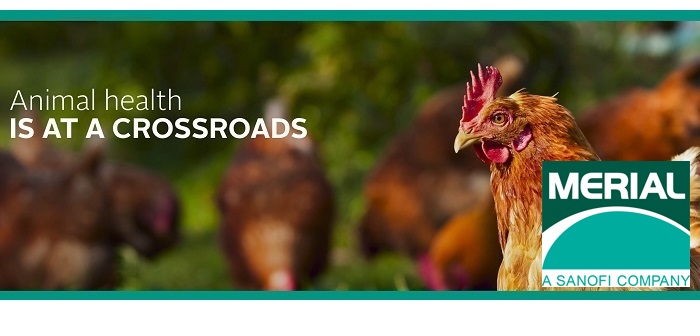Global poultry production requires all-encompassing and evolving strategies that address infrastructure, production systems, disease prevention and sustainability, according to the animal health company, Merial.
“The growth of the global population, alongside expanding middle class populations and incomes in many developing countries, will require more than 30% more animal protein worldwide by the year 2030,” stated Merial during its recent global avian forum in Barcelona.
“As a result, poultry producers are advancing their business models to deliver a greater quantity of healthy chicken meat at affordable prices.”
The company’s progressive message was delivered to more than 500 participants, who gathered in the Spanish city to address the growing global demand for an “abundant supply of safe and affordable source of protein”.
Delegates included poultry and egg producers, top avian health scientists and industry experts from 70 countries, with the debate focusing on how to share information about solutions to prevent and control disease, strategies to increase productivity of poultry flocks and measures to maximise the efficiency of poultry producers’ businesses.
Rabobank’s animal protein analyst, Nan-Dirk Mulder, highlighted the opportunity for producers to benefit from the fact that poultry is the fastest growing protein market, due to low production costs, the health benefits of chicken meat and consumer preference for affordability and convenience.
In that context, he addressed the importance of production efficiency, in light of the increasing pressures of global animal disease, supply and distribution challenges, food safety, animal welfare and environmental sustainability.
The meeting also examined the evolution of (re)emerging diseases around the world, including respiratory diseases (avian influenza, Newcastle disease virus (NDV), Marek’s disease, infectious bronchitis, mycoplasmosis and infectious laryngotracheitis) and digestive diseases (caused by viruses, bacteria, coccidia, Histomonas and other parasites).
In looking at strategies to prevent and control these “highly endemic diseases”, delegates were urged to consider a range of approaches, including:
- Disease diagnostic and vaccine monitoring tools
- Current and new vector vaccines in development
- Vaccination delivery methods and equipment solutions
- Hatchery automation and management techniques
- Flock management, cleaning & disinfection
Merial also used the meeting to announce updates on the use of its NeO effervescent tablet vaccine formulation (launched in September 2015), pointing out that the product is already available in 16 countries, for immunisation against NDV, and continues to be rolled-out globally.
The forum also recognised the 10-year anniversary of Merial’s VAXXITEK HVT+IBD vector vaccine, used to protect flocks against Marek’s disease and Gumboro disease.
Merial, who produce more than 150 billion doses in 1,000 poultry vaccine presentations to protect birds against 20 different diseases worldwide, also said it would “continue to invest significantly in new avian research and development opportunities to further advance the protection and safety of poultry production worldwide”.


